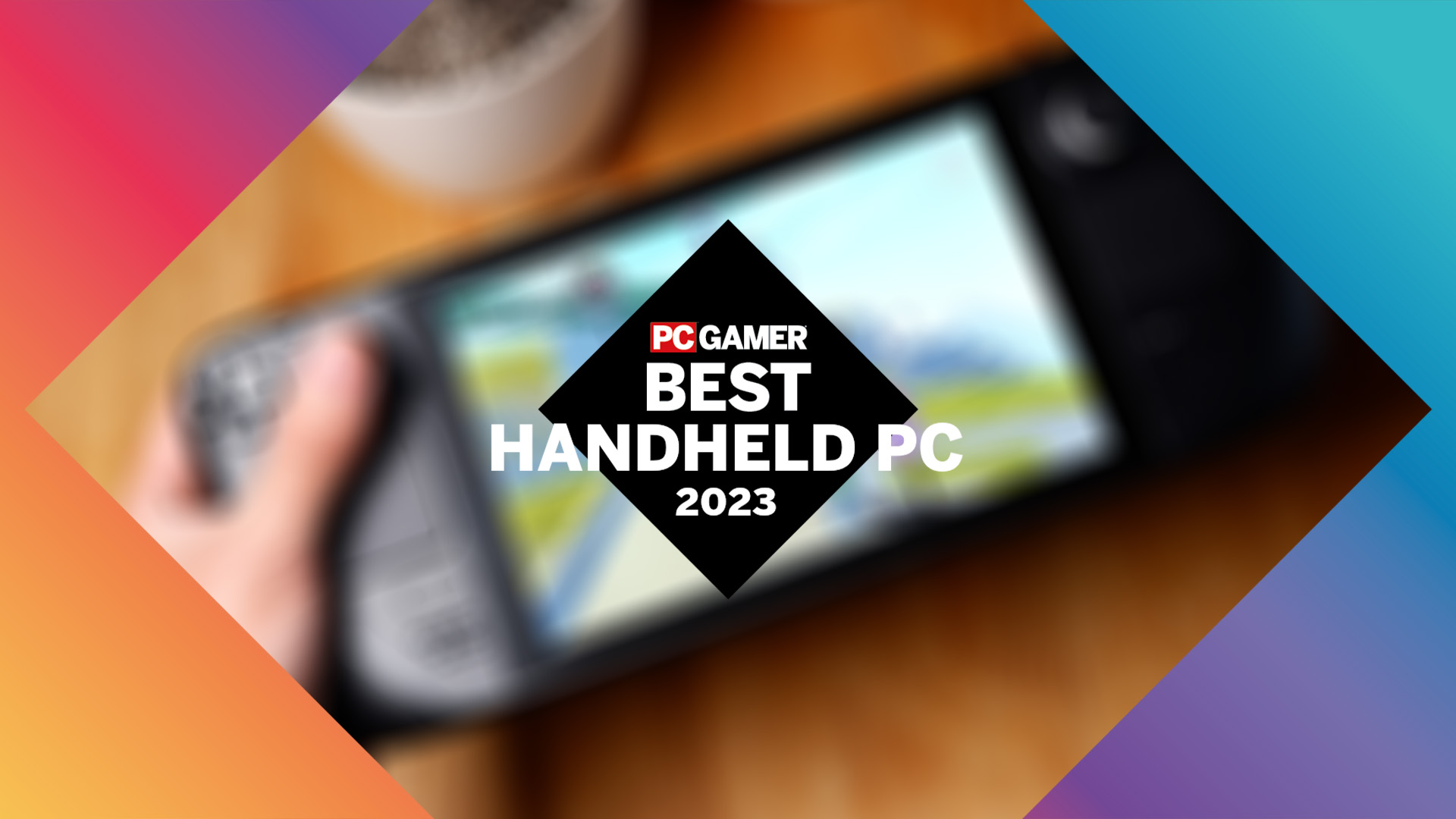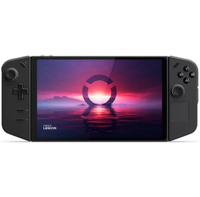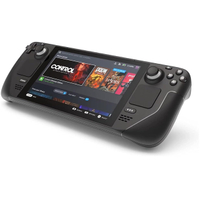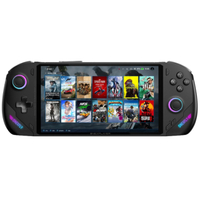PC Gamer Hardware Awards: The best handheld gaming PC of 2023
This year has been the best for PC handhelds since, well, ever. New products, loads of competition, but only one winner.

As I see it there have been three epochs of PC handhelds. Firstly, the initial wave of prototype and underpowered devices testing the waters. I tried a good few of these early handhelds, and they all seemed fatally flawed in their own way. Not to worry, next came the big bang of the Steam Deck. This is when Valve figured out a winning formula and handhelds suddenly made sense to your average gamer.
Today, we're in another epoch, one of rapidly evolving designs. We went from barely one good handheld last year to being unable to decide between them which ones will make it into our best handheld gaming PC guide.
Just this year we've seen the release of heaps of handhelds including the ROG Ally, OneXPlayer OneXFly, OneXPlayer 2 Pro, Ayaneo Air 1S, Ayaneo 2S, Lenovo Legion Go, Aokzoe A1 Pro, and the Valve Steam Deck OLED. There are a host of other designs in the pre-order stage, and I'm sure I'm missing a few other crowd-funded ones, too.
There's a good reason why we've so many handheld gaming PCs to choose from. It's mostly thanks to one particularly impressive AMD processor: the Ryzen 7 7840U. This chip powers just about every device on that list, either as the 7840U or in its semi-custom guise, the Z1. It's only Valve opting for another chip, and that's still an AMD semi-custom job.
We had a tough time trying to whittle down this year's handhelds to just three nominations. But myself, and the wider PC Gamer Hardware team, think we have come up with a solid list. Here goes:
Best handheld gaming PC 2023: the nominees
Steam Deck OLED
The Steam Deck launched handheld PC gaming into the mainstream, but Valve wasn't quite done tinkering with the design. While not quite a Steam Deck 2, the Steam Deck OLED is a revision of the popular handheld that improves upon the original design in oh so many ways.
The screen receives the bulk of the updates with a sparkling new OLED panel. Obviously, hence the name change. Deeper blacks, rich colours, faster refresh rates, and genuine HDR are all on the cards now, and Tyler came away seriously impressed with the new screen during his review.
Beyond a better panel, the Steam Deck OLED also has a bigger battery, a new carry case, and a new 1TB SSD option. All seriously good quality of life updates on an already impressive handheld device.
Read our Steam Deck OLED review.
OneXPlayer OneXFly
Coming in smaller and lighter than the Steam Deck, the little OneXPlayer makes for a wonderful halfway house between a larger handheld and something like the Ayaneo Air 1S, which is genuinely quite tiny. The OneXFly doesn't massively sacrifice screen space, either, as the lack of bezels across the top and bottom help keep things compact while retaining a 7-inch panel.
Despite its small stature, the OneXFly packs a mighty portable punch with AMD's excellent Ryzen 7 7840U and up to 4TB of storage and 64GB of RAM. That's clearly overkill, and we prefer the cheaper and far more sensible options, but it's further proof you don't need a chunky PC tower to score top specs. It also benefits from loads of connectivity options, including a full Type-A port and two USB4 sockets that come in mighty handy.
The best blend of screen size and specs, the only thing holding this device back is its price, which is higher than some of the more mainstream options.
Read our OneXPlayer OneXFly review.

Lenovo Legion Go
We've had the Lenovo Legion Go in the office for a couple of weeks now, playing around with its detachable controllers and large 8.8-inch screen. While I'm still yet to finalise my thoughts into a full review, the longer I've spent with the device, the more I've come away impressed with all it has to offer. It's incredibly well-made, and the all-black finish is gorgeous.
At its core remains the same Ryzen 7 7840U processor that powers most non-Valve handhelds today. That's both a blessing and a curse. It's an awesome chip with a surprising amount of CPU performance under the hood, though admittedly it only just has the GPU grunt to deliver at 1080p. Often it requires upscaling to really reach playable frame rates for a frame rate aficionado like me, and that does make me wonder why Lenovo bothered sticking a QHD+ resolution panel in this device. Nonetheless, that panel actually scales down to 1200p exceptionally well.
Lenovo has clearly thrown a lot at the Legion Go to stand out from the crowd. Some things, like the QHD+ panel and novelty FPS mode, seem like more bullet-point benefits for marketing than practical use, yet it remains that this device is mostly superb, including the software. Considering it's also one of the cheaper handhelds today thanks to Lenovo's mass manufacturing might, you can't pass this deal up easily.
The winner of the PC Gamer Hardware Award for the best handheld gaming PC will be announced on New Year's Eve. All three of these handhelds are in with a shot of taking home the big prize, so tune in to find out which one it'll be.
Keep up to date with the most important stories and the best deals, as picked by the PC Gamer team.

Jacob earned his first byline writing for his own tech blog. From there, he graduated to professionally breaking things as hardware writer at PCGamesN, and would go on to run the team as hardware editor. He joined PC Gamer's top staff as senior hardware editor before becoming managing editor of the hardware team, and you'll now find him reporting on the latest developments in the technology and gaming industries and testing the newest PC components.



